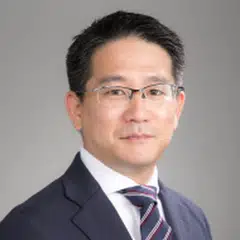
Tomoki Kamo
Professor of Chinese politics, Faculty of Policy Management, Keio University
Dr Tomoki Kamo is a professor of Chinese politics at the Faculty of Policy Management at Keio University. His research and teaching focus are on Chinese politics and foreign policy, comparative politics, and international relations of East Asia. He was appointed as a consul to the Consulate-General of Japan in Hong Kong (2016-2018). He was a visiting scholar at the Graduate Institute of Political Science, National Taiwan Normal University in 2010 and Center of Chinese Studies, University of California, Berkeley from 2011 to 2012. He was also a visiting associate professor at the College of International Affairs, National Chengchi University in Taiwan between 2013 and 2013. Previously, he served as a research fellow at the Consulate-General of Japan in Hong Kong (2001-2003) and studied at Fudan University (1995-1996). He received his B.A., M.A. and Ph.D. in Media and Governance from Keio University. His recent publications include Political Institutions in Contemporary Chinese Politics: The Politics of Temporality and the Rule of the Chinese Communist Party (2018); The Sources of China's Foreign Policy (2016); and The Rise of China as a major power (2016).